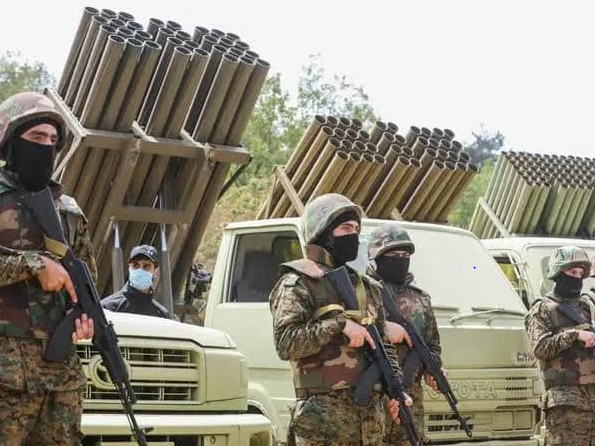In the volatile theater of Middle Eastern geopolitics, the specter of renewed conflict between Israel and Hezbollah looms ominously. Recent statements from Israeli and Hezbollah leaders underscore the delicate balance of power and the intricate strategic calculations guiding both sides. At the heart of this calculus lies the elusive pursuit of decisive victory, a goal that has proven elusive for decades.
Israel, with its formidable military prowess, stands poised against Hezbollah, the Lebanese Shiite militant group backed by Iran. This asymmetrical confrontation has defined the region’s landscape, punctuated by sporadic escalations and fragile truces. Despite Israel’s clear military superiority, the prospect of a full-scale invasion into southern Lebanon, Hezbollah’s stronghold, remains fraught with daunting challenges and potential pitfalls.
Hezbollah, on the other hand, boasts a substantial arsenal of rockets and a demonstrated capability to inflict significant harm on Israeli soil. This mutual deterrence has forged a tense standoff where neither side can claim outright victory without incurring devastating costs. The strategic calculus for both Israel and Hezbollah thus revolves around minimizing losses while maximizing gains—a delicate balance that shapes their every move.
For Israeli Prime Minister Benjamin Netanyahu and his security cabinet, the threat posed by Hezbollah is a persistent and pressing concern. The group’s entrenched presence in Lebanon, coupled with its sophisticated military infrastructure, including an estimated 150,000 rockets, poses a direct challenge to Israeli security. Moreover, Hezbollah’s role as a proxy for Iran introduces a layer of complexity, potentially entangling Israel in a broader regional conflict with far-reaching consequences.
Central to Israel’s strategic deliberations is the timing of any potential military action against Hezbollah. This decision hinges on a myriad of factors, each influencing the calculation of risk and reward. The stability of the region, the dynamics of international diplomacy, and the operational readiness of Israeli defense forces all play pivotal roles in shaping this critical decision.
In my opinion, the optimal window for Israel to engage Hezbollah lies in a meticulously planned sequence of events. Firstly, a period of consolidation following an end to full-scale hostilities in Gaza would be prudent. This phase allows for the replenishment of military resources and the reassessment of strategic priorities. A timeframe of at least three months is advisable to ensure readiness and resilience in the face of potential counterattacks.
Moreover, external geopolitical factors must also be taken into account. The timing of military action against Hezbollah could be strategically synchronized with significant events on the international stage, such as the conclusion of the US November elections or the inauguration of the next US president. These junctures offer opportunities to align Israel’s strategic interests with broader geopolitical shifts, potentially influencing regional dynamics and international support.
The rationale behind such a calculated approach is clear: to minimize risks while maximizing the efficacy of military operations against Hezbollah. By leveraging periods of relative stability and international alignment, Israel can enhance its strategic position and mitigate potential repercussions. This strategic patience is not driven by hesitancy or indecision but rather by a prudent assessment of risks and rewards in a complex and volatile geopolitical landscape.
Critically, any military action against Hezbollah must be conducted with precision and foresight. The objective is not merely to degrade Hezbollah’s capabilities but also to recalibrate regional dynamics in Israel’s favour through resounding victory at all cost. This requires a nuanced understanding of Hezbollah’s operational resilience and a comprehensive strategy to completely crush them. This may require scourge earth tactics combined with harsh attrition doctrine.
Furthermore, Israel’s approach must account for the humanitarian and geopolitical consequences of renewed hostilities. Efforts to minimize civilian casualties and mitigate the impact on regional stability are paramount, reflecting Israel’s commitment to responsible military conduct and international norms.
In nutshell, the timing of Israel’s potential military engagement with Hezbollah is a strategic imperative shaped by multifaceted considerations. It demands a judicious blend of operational readiness, geopolitical strategy, and international alignment. By carefully navigating these complexities, Israel can assert its security interests while mitigating the risks of prolonged conflict and regional instability.
As Israel navigates the intricate landscape of Middle Eastern geopolitics, the timing of its actions against Hezbollah will be pivotal in shaping the region’s future trajectory. In the pursuit of security and stability, strategic patience and foresight must guide every decision, ensuring that the guns are pointed with precision and purpose.





